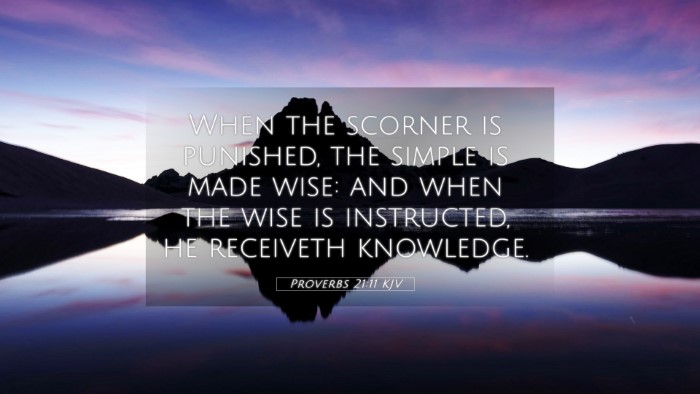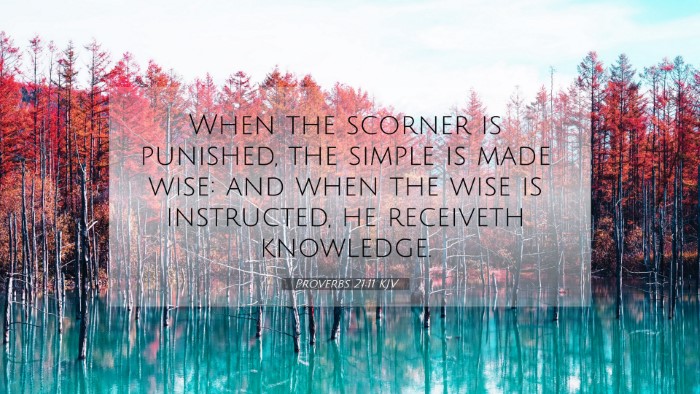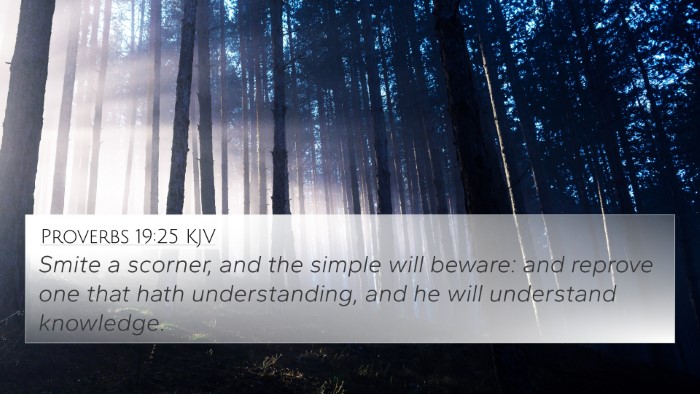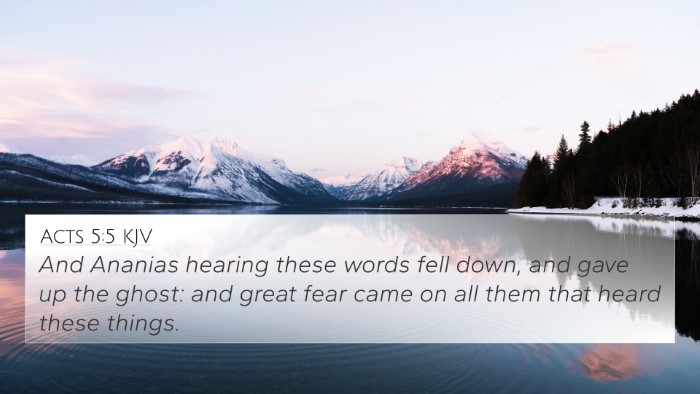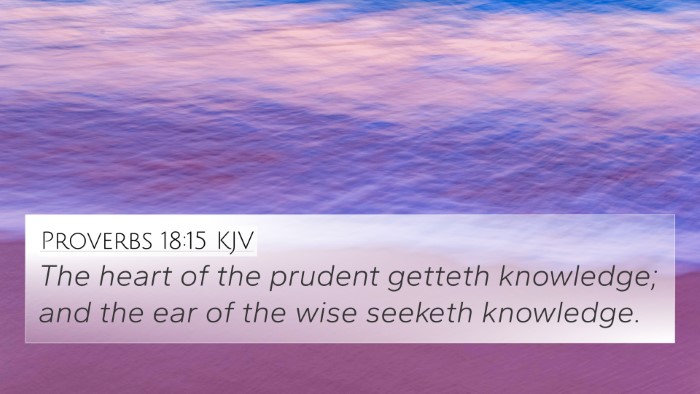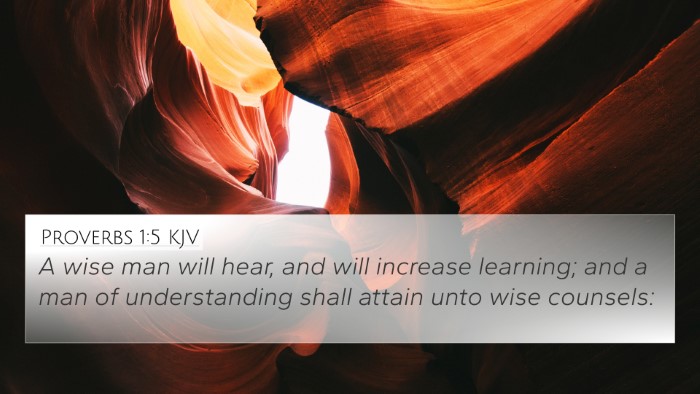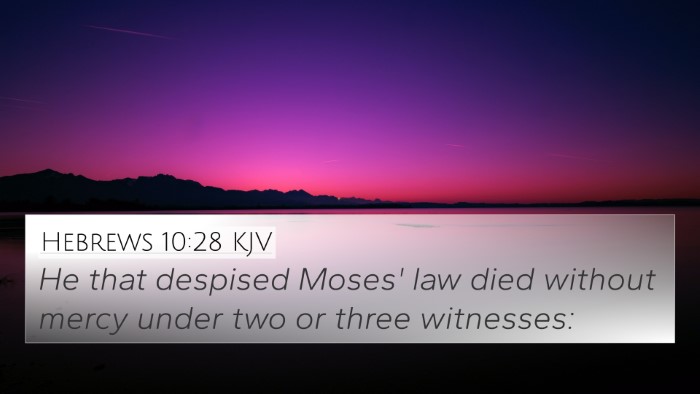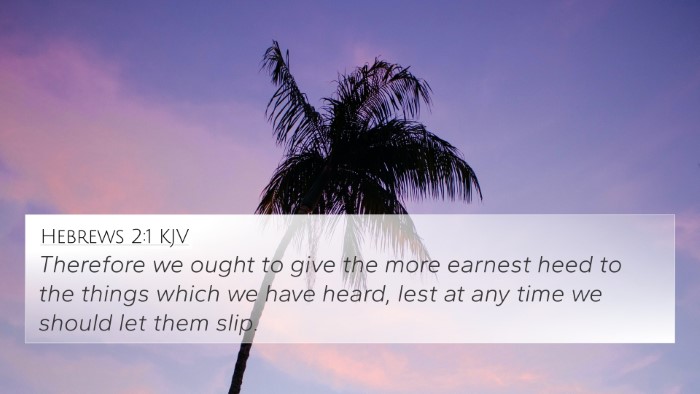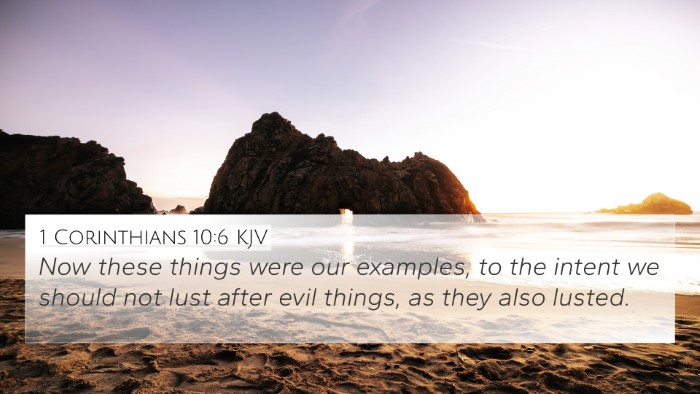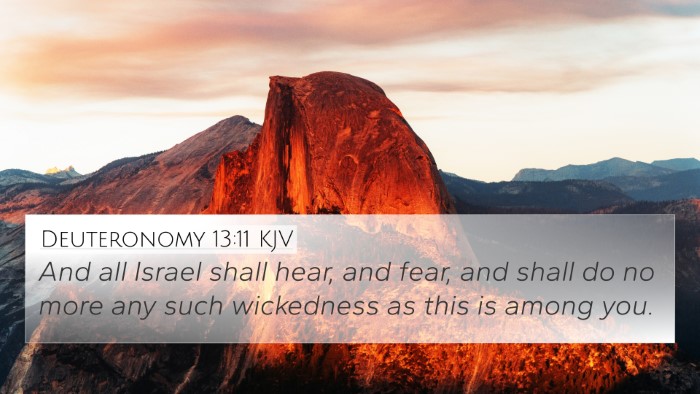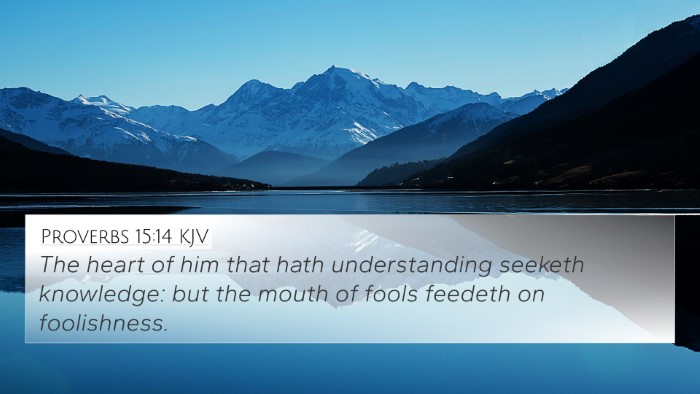Understanding Proverbs 21:11
Proverbs 21:11: "When the scoffer is punished, the simple is made wise; but when the wise is instructed, he receives knowledge."
This verse highlights the dual outcomes of punishment and instruction, emphasizing how different types of individuals respond to situations of learning and correction.
Summary of Insights
-
Matthew Henry's Commentary:
Henry discusses how punishment serves as a corrective measure, particularly to those who are unwise or foolish. It suggests that the presence of judgment leads the simple-minded to grasp wisdom.
-
Albert Barnes' Notes:
Barnes emphasizes the importance of learning from the fates of others. The scoffer's punishment acts as a lesson for the simple, while the wise derive deeper knowledge from their learning experiences.
-
Adam Clarke's Commentary:
Clarke elaborates on the concept of correction, pointing out that the wise benefit from every opportunity to understand and expand their knowledge, demonstrating the growth of wisdom through instruction.
Key Themes
- Learning from Others: This verse emphasizes the significance of observing the consequences faced by others, particularly in the context of punishment.
- Different Responses to Correction: The verse contrasts the responses of the scoffer, simple, and wise, indicating that not everyone benefits equally from experiences of chastisement or teaching.
- The Role of Instruction: The transformative power of instruction is highlighted, showing that wisdom can be cultivated through teaching and learning.
Cross-References
This verse can be linked to several other scriptures that enhance its meaning through context and thematic connections:
- Proverbs 9:8-9: "Do not reprove a scoffer, or he will hate you; rebuke a wise man, and he will love you. Give instruction to a wise man, and he will be still wiser; teach a righteous man, and he will increase in learning."
- Proverbs 15:32: "He who ignores discipline despises himself, but whoever heeds correction gains understanding."
- Proverbs 19:25: "Strike a scoffer, and the simple will become wary; reprove a discerning man, and he will understand!"
- Ecclesiastes 7:5: "It is better for a man to hear the rebuke of the wise than to hear the song of fools."
- Hebrews 12:11: "For the moment all discipline seems painful rather than pleasant, but later it yields the peaceful fruit of righteousness to those who have been trained by it."
- 2 Timothy 3:16-17: "All Scripture is breathed out by God and profitable for teaching, for reproof, for correction, and for training in righteousness, that the man of God may be competent, equipped for every good work."
- Proverbs 28:26: "Whoever trusts in his own mind is a fool, but he who walks in wisdom will be delivered."
Thematic Connections
This verse encourages readers to explore various theological themes present within the Bible through the framework of wisdom and correction:
- Wisdom Literature: The connection to other Proverbs reinforces themes within wisdom literature, where lessons are drawn from everyday life experiences.
- Consequences of Actions: A broader examination of scripture reveals consistent principles about the reaping of consequences and communal learning through shared experience.
Tools for Cross-Referencing
To delve deeper into the themes of Proverbs 21:11, readers may want to consider using various resources:
- Bible Concordance
- Bible Cross-Reference Guide
- Cross-Reference Bible Study
- Comprehensive Bible Cross-Reference Materials
Conclusion
Proverbs 21:11 serves as a reminder of the varying responses individuals have to correction and instruction, emphasizing the role of wisdom gained through observation and learning from others’ experiences.

